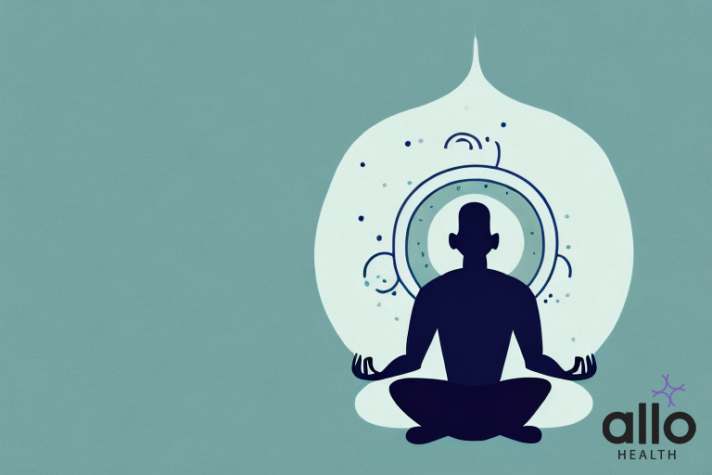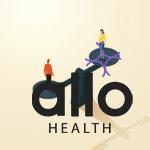The Advantages of Not Ejaculating for 7 Days

Allo Health is dedicated to personalized well-being, offering support and trusted information tailored to individual health goals. The platform emphasizes human-generated content, led by a distinguished medical team of experts, including physicians and sexual health specialists. Their commitment to credibility involves rigorous fact-checking, authoritative research, and continuous updates to ensure accurate, up-to-date information. Allo Health's unique approach goes beyond conventional platforms, providing expert-led insights and a continuous commitment to excellence, with user feedback playing a crucial role in shaping the platform's authoritative voice.

Dr.Sushma.V completed MBBS degree from BGS GIMS,bangalore
Why This Was Upated?
Our experts continually monitor the health and wellness space, and we update our articles when new information became available.
Updated on 19 June, 2024
- Article was updated as part of our commitment to diversity, equity, and inclusion.

"The following blog article provides general information and insights on various topics. However, it is important to note that the information presented is not intended as professional advice in any specific field or area. The content of this blog is for general educational and informational purposes only.
Book consultation
The content should not be interpreted as endorsement, recommendation, or guarantee of any product, service, or information mentioned. Readers are solely responsible for the decisions and actions they take based on the information provided in this blog. It is essential to exercise individual judgment, critical thinking, and personal responsibility when applying or implementing any information or suggestions discussed in the blog."
The topic of abstaining from ejaculation or semen retention has generated a fair amount of interest and debate, with proponents suggesting various potential physical and psychological benefits. One common recommendation is to abstain from ejaculation for seven days, also known as the “NoFap” challenge. While this topic remains somewhat controversial, there are indeed several claimed benefits associated with abstaining from ejaculation for a week. In this article, we will explore some of these potential advantages, as well as the science behind them.
The Science Behind Ejaculation and Its Effects on the Body
Ejaculation is a complex physiological process that involves various organs and systems in the body. It is primarily associated with the male reproductive system, but there are similarities in the female sexual response as well. Here’s a brief overview of the science behind ejaculation and its effects on the body:
- Male Reproductive System:
- The process of ejaculation begins in the male reproductive system, which includes the testes, epididymis, vas deferens and prostate gland.
- Sperm are produced in the testes and mature in the epididymis before they are transported to the vas deferens.
- Sexual Arousal:
- Sexual arousal, which can result from various physical and psychological stimuli, leads to the release of hormones like testosterone, triggering an erection and the desire to ejaculate.
- Emission:
- Emission is the first stage of ejaculation. It involves the movement of sperm and seminal fluid from the vas deferens, seminal vesicles and prostate gland into the urethra.
- The sympathetic nervous system is responsible for the contraction of the vas deferens and the closure of the bladder neck to prevent urine from mixing with the ejaculate.
- Expulsion:
- The expulsion phase follows emission and is characterized by the rhythmic contractions of muscles surrounding the base of the penis.
- These contractions propel the sperm and seminal fluid through the urethra and out of the penis in a series of spurts.
- Effects on the Body:
- Ejaculation is associated with a range of physical and psychological effects on the body, including:
- a. Pleasure and Orgasm: Ejaculation is typically accompanied by pleasurable sensations and the experience of orgasm, which are driven by the release of dopamine and other neurotransmitters in the brain.b. Physical Changes: Ejaculation results in various physiological changes, such as increased heart rate, blood pressure and muscle contractions, which contribute to the overall intensity of the experience.
c. Emotional Response: After ejaculation, there is often a refractory period during which it is difficult to achieve another erection or ejaculation. This period can vary between individuals.
d. Fertilization: The primary biological purpose of ejaculation is the delivery of sperm to the female reproductive tract, where they can potentially fertilize an egg, leading to conception.
- Health and Well-Being:
It’s important to note that the experience of ejaculation can vary from person to person, and it can be influenced by a variety of factors, including age, overall health and individual preferences. Additionally, any concerns or questions related to ejaculation or sexual health should be discussed with a healthcare professional.

What Happens When You Don’t Ejaculate for 7 Days?
There is a popular notion in some cultures and communities that abstaining from ejaculation for a certain period, such as 7 days, can offer various health benefits such as helping with erectile dysfunction. It’s important to note that the advantages or disadvantages of abstaining from ejaculation or masturbation even can be subjective and may vary from person to person. Here are some potential advantages that some people associate with not ejaculating for 7 days:
Increased Energy and Vitality
One of the most commonly cited benefits of abstaining from ejaculation for seven days is the potential for increased energy and vitality. It’s believed that retaining seminal fluids can help the body conserve vital nutrients and energy, which might otherwise be lost through ejaculation. This surplus energy can then be redirected towards other aspects of life, such as physical fitness, productivity, and creativity.
Improved Focus and Mental Clarity
Proponents of abstaining from ejaculation claim that it can lead to improved focus and mental health clarity. They argue that abstaining from ejaculation allows the mind to be less preoccupied with sexual thoughts and desires, which can result in better concentration and cognitive performance. However, scientific evidence supporting this claim is limited and mixed.
Enhanced Confidence and Self-Esteem
Some individuals who practice abstinence from ejaculation report increased confidence and self-esteem. They attribute this boost to a sense of self-control and discipline. The psychological benefits of setting and achieving a personal goal like a seven-day abstinence challenge can indeed be empowering and contribute to a heightened sense of self-worth.
Better Emotional Well-Being
A few people claim that abstaining from ejaculation can lead to improved emotional well-being. They argue that it reduces feelings of guilt or shame associated with excessive or compulsive sexual behavior. However, the relationship between ejaculation frequency and emotional well-being is complex, and individual experiences vary greatly.
Enhanced Sexual Sensation
Some proponents of No Fap believe that abstaining from ejaculation for an extended period can result in heightened sexual sensitivity and more intense orgasms when they do occur. This is based on the idea that a buildup of sexual tension can enhance pleasure. However, scientific evidence for this claim is limited.
The Risks and Considerations of Abstaining from Ejaculation
Abstaining from ejaculation, whether for a short period or an extended one, is a personal choice that can have both potential benefits and negative effects. It’s important to consider various factors and consult with a healthcare professional if you have concerns about how it may affect your health and well-being. Here are some risks and considerations associated with abstaining from ejaculation:
Prostate Health
Regular ejaculation has been associated with potential benefits for prostate health. It may help flush out toxins and reduce the risk of conditions like prostatitis or prostate cancer. Prolonged abstinence might theoretically increase the risk of these issues, but more research is needed to establish a direct link.
Sexual Function
Extended periods of abstaining from ejaculation can sometimes lead to difficulties with sexual function. For example, some individuals may experience difficulties in achieving or maintaining an erection due to reduced sexual activity.
Psychological Impact
Abstaining from ejaculation can have psychological effects. Some individuals might experience increased sexual frustration, irritability or mood swings during prolonged periods of abstinence.
Risk of Infection
Sexual activity, including ejaculation, can help clear the urethra of potential infections. Abstaining for too long might increase the risk of urinary tract infections or other complications.
Personal Comfort
Your comfort and satisfaction are crucial factors to consider. Abstaining for a certain period should be a personal choice and it should align with your physical and emotional well-being.
Sexual Compatibility
In a relationship, it’s important to communicate with your partner about your sexual needs and preferences. Prolonged abstinence may not align with your partner’s desires or needs, potentially causing relationship issues.
Balanced Approach
A balanced approach to sexual activity is often recommended. This means finding a healthy equilibrium between sexual activity and periods of abstinence that work for you and your partner.
Consultation with a Healthcare Professional
If you have specific concerns or medical conditions, it’s advisable to consult with a healthcare professional. They can provide guidance based on your individual health and circumstances.
It’s worth emphasizing that individual responses to abstinence can vary widely. Some people may find that short-term abstinence increases sexual desire and satisfaction, while others may experience discomfort or frustration. It’s important to be attentive to your own body and emotional well-being and to communicate openly with your partner about your sexual desires and needs.
While there are potential risks and considerations associated with abstaining from ejaculation, the decision to do so should be made based on individual comfort, preferences, and a consideration of potential health implications. If you have concerns, discussing them with a healthcare professional or a qualified sex therapist can provide personalized guidance.

How to Manage Sexual Urges and Avoid Ejaculation for a Week
Managing sexual urges and abstaining from ejaculation for a week can be a personal challenge for various reasons, whether it’s for health, personal choice or other reasons. Here are some tips that may help you manage sexual urges and abstain from ejaculation for a week:
- Self-awareness: Understand your reasons for wanting to abstain from ejaculation. Whether it’s for health, personal development or a specific goal, having a clear purpose can help you stay motivated.
- Set realistic goals: Instead of aiming for an entire week right away, consider starting with shorter periods of abstinence and gradually extending them. Set achievable milestones to track your progress.
- Engage in physical activity: Physical exercise can help reduce sexual tension and provide an outlet for pent-up energy. Regular physical activity can also improve your mood and overall well-being.
- Practice relaxation techniques: Techniques such as deep breathing, meditation, and yoga can help you manage stress and reduce sexual urges. These practices can help you stay calm and focused.
- Keep yourself busy: Distract yourself with activities that you enjoy or that require your full attention. This could be a hobby, work, socializing, or engaging in creative pursuits.
- Avoid sexual stimuli: Minimize exposure to sexually explicit content, including pornography, as it can increase sexual urges. Use website blockers or filters if necessary.
- Self-control: Develop self-discipline and control over your sexual urges. Learn to recognize the moments when you are most tempted and use mental techniques to divert your thoughts.
- Open communication: If you are in a relationship, discuss your goals and reasons with your partner. They can provide support and understanding, and together, you can work on ways to manage sexual urges while maintaining a healthy sexual connection.
- Avoid alcohol and recreational drugs: Substances can lower inhibitions and impair judgment, potentially leading to unwanted sexual activity.
- Seek professional help: If you find it exceptionally difficult to manage sexual urges or if you have specific concerns about sexual health, consider consulting a therapist, counselor or a healthcare professional for guidance and support.
- Practice edging: Some people engage in edging, which involves stopping sexual stimulation just before reaching the point of ejaculation, to extend sexual activity without ejaculation. This requires self-control and can help you better understand your body’s responses.
Remember that everyone’s experience is different, and it’s important to prioritize your physical and emotional well-being. Abstaining from ejaculation should be a choice that aligns with your goals and comfort level. If you find that it becomes distressing or negatively affects your life, consider reevaluating your goals and seeking medical advice from a healthcare professional or a qualified therapist.
Conclusion
The benefits of abstaining from ejaculation for seven days or longer are a subject of debate and controversy. While some individuals have reported experiencing beneficial effects, it’s crucial to recognize that these positive effects can vary greatly from person to person. Furthermore, the scientific evidence supporting these claims is limited and inconclusive. As with many aspects of human health and sexuality, the most important factor is to find a balance that works for you and respects your individual needs and preferences. If you’re considering trying a period of abstinence, consult with a healthcare professional to ensure it aligns with your personal health and well-being.
Frequently Asked Questions
- What are the potential benefits of abstaining from ejaculation for a week?
Abstaining from ejaculation for a week, or any specific period, is believed by some to lead to increased sexual desire, more intense orgasms, and potentially improved sexual performance. Some people also claim it can enhance focus and productivity.
- Can abstaining from ejaculation for 7 days improve sexual pleasure?
Some individuals report that delaying ejaculation can lead to more intense orgasms and heightened sexual pleasure. The build-up of sexual tension during this time is believed to contribute to a more satisfying release.
- Does abstaining for a week have any impact on fertility?
Abstaining from ejaculation for a short period, like 7 days, is not likely to affect fertility significantly. However, prolonged abstinence can result in a higher sperm count in a single ejaculate, potentially increasing the chances of conception during that time.
- Are there any psychological benefits to not ejaculating for a week?
Some proponents believe that abstaining from ejaculation can lead to increased focus, energy, and productivity as sexual energy is redirected into other aspects of life. However, the psychological benefits can vary from person to person.
- Is there scientific evidence to support the benefits of abstaining from ejaculation for 7 days?
Scientific research on this specific topic is limited, and the reported benefits are largely anecdotal. More research is needed to establish a concrete link between abstinence and the mentioned benefits.






































